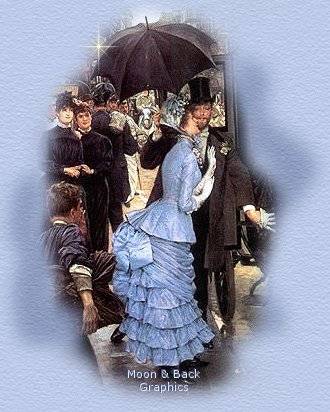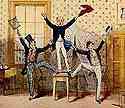|
 Web
Operas Web
Operas
featuring
All of the Music
and
The Full Lyrics and Dialogue
of
Eleven 19th Century Light Operas
The following titles will link you directly to the
Explore their website to your heart's content. It
is fabulous!
If you prefer, click on an individual opera below

 With words by Basil Hood and music by Sullivan, this opera was the
Savoy's most financially successful hit of the 1890's. Has some really
wonderful music, and a very clever libretto. The first modern recording
of this opera was distributed with the May 1999 edition of the BBC Music
Magazine.
With words by Basil Hood and music by Sullivan, this opera was the
Savoy's most financially successful hit of the 1890's. Has some really
wonderful music, and a very clever libretto. The first modern recording
of this opera was distributed with the May 1999 edition of the BBC Music
Magazine.
Words by Harry Greenbank and music by Ernest Ford. This one act operetta
played at the Savoy Theatre in 1893 as a companion piece to two
different operas. Has its own special brand of humor, and some very neat
music.
|
 This
opera opened May 28, 1878, at the Opera Comique and ran for 571
performances. The captain's daughter and a common sailor on his ship
fall in love. The first smash hit Gilbert and Sullivan opera, and one of
the Big Three today. This
opera opened May 28, 1878, at the Opera Comique and ran for 571
performances. The captain's daughter and a common sailor on his ship
fall in love. The first smash hit Gilbert and Sullivan opera, and one of
the Big Three today.
 Opened
April 2, 1880 at Opera Comique and ran for 363 performances. The second
smash hit Gilbert and Sullivan opera, and the first ever Web Opera. A
young pirate just out of his "indentures" is in love with
Mabel, Major General Stanley's ward, while the rest of the pirate crew
want to marry the general's other wards. Opened
April 2, 1880 at Opera Comique and ran for 363 performances. The second
smash hit Gilbert and Sullivan opera, and the first ever Web Opera. A
young pirate just out of his "indentures" is in love with
Mabel, Major General Stanley's ward, while the rest of the pirate crew
want to marry the general's other wards.
|
The most popular Gilbert and Sullivan opera, and arguably the most
popular  opera
ever written. This opera has delighted audiences for more than a
century, and spawned a number of imitations. But none were nearly as
good as the original, which represented both Gilbert and Sullivan at the
height of their creative geniuses. opera
ever written. This opera has delighted audiences for more than a
century, and spawned a number of imitations. But none were nearly as
good as the original, which represented both Gilbert and Sullivan at the
height of their creative geniuses.
 The
only one act Gilbert and Sullivan Opera and the only one without spoken
dialogue. This is the oldest G&S Opera to have survived intact. This
opera has been a perennial favorite since it was first performed in
1875. The
only one act Gilbert and Sullivan Opera and the only one without spoken
dialogue. This is the oldest G&S Opera to have survived intact. This
opera has been a perennial favorite since it was first performed in
1875.
|
by W.S. Gilbert and Frederic
Clay. Opened November 22, 1869, at the Royal Gallery of
Illustration.  This
operetta was a great success, making Gilbert the most important
playwright at the Gallery of Illustration. Features a picture gallery in
an old castle, with ancestors stepping out of the picture frames. This
theme was to appear again in the Gilbert and Sullivan opera Ruddigore.
This one is more of a comedy than Ruddigore, with lots of sprightly,
happy music. This
operetta was a great success, making Gilbert the most important
playwright at the Gallery of Illustration. Features a picture gallery in
an old castle, with ancestors stepping out of the picture frames. This
theme was to appear again in the Gilbert and Sullivan opera Ruddigore.
This one is more of a comedy than Ruddigore, with lots of sprightly,
happy music.
 by Frank Desprez and Quade Winters. Another first for the G&S
Archive -- the first opera scored specifically for the World Wide Web.
The original score for this little opera, which played at the Savoy
Theatre in 1886 and 1887, was written by Alfred Cellier. This
reconstruction has been scored for the G&S Archive by Quade Winter,
the composer in residence for the Ohio Light Opera company.
by Frank Desprez and Quade Winters. Another first for the G&S
Archive -- the first opera scored specifically for the World Wide Web.
The original score for this little opera, which played at the Savoy
Theatre in 1886 and 1887, was written by Alfred Cellier. This
reconstruction has been scored for the G&S Archive by Quade Winter,
the composer in residence for the Ohio Light Opera company.
|
Libretto by F. C. Burnand, music by Sir Arthur Sullivan. Opened at St.  George's
Hall, London, on December 18, 1867. This one is a real rarity --
considerable detective work was involved in coming up with the libretto
and score for this Web Opera. This was Sullivan's first two-act
operetta, and only his second operetta (the first being Cox
and Box). Contains some very nice music. George's
Hall, London, on December 18, 1867. This one is a real rarity --
considerable detective work was involved in coming up with the libretto
and score for this Web Opera. This was Sullivan's first two-act
operetta, and only his second operetta (the first being Cox
and Box). Contains some very nice music.
 Sullivan's
first opera, with lyrics by F. C. Burnand. Sergeant Bouncer, an old
soldier, has a scheme to get double rent from a single room. By day he
lets it to Mr. Box (a printer who is out all night) and by night to Mr.
Cox (a hatter who works all day). But then Mr. Cox gets an unexpected
day off. This delightful little opera has been a perennial favorite
since it was first performed in 1866. Sullivan's
first opera, with lyrics by F. C. Burnand. Sergeant Bouncer, an old
soldier, has a scheme to get double rent from a single room. By day he
lets it to Mr. Box (a printer who is out all night) and by night to Mr.
Cox (a hatter who works all day). But then Mr. Cox gets an unexpected
day off. This delightful little opera has been a perennial favorite
since it was first performed in 1866. |
 Libretto
by B. Rowe (B. C. Stephenson), and music by Sir Arthur Sullivan.
Hi-jinks on a sunny afternoon in the London Zoological Gardens. First
performed on June 5, 1875, a few weeks after Trial
By Jury opened. It was produced as an afterpiece to Gilbert's farce Tom
Cobb. Like Trial by Jury, The Zoo is a one-act piece without
spoken dialogue. Libretto
by B. Rowe (B. C. Stephenson), and music by Sir Arthur Sullivan.
Hi-jinks on a sunny afternoon in the London Zoological Gardens. First
performed on June 5, 1875, a few weeks after Trial
By Jury opened. It was produced as an afterpiece to Gilbert's farce Tom
Cobb. Like Trial by Jury, The Zoo is a one-act piece without
spoken dialogue.

|
|
|
|
|
|
|
    
|
Buy the soundtrack
|
|

The producers of Mike Leigh's vibrant Topsy-Turvy took many
big studio meetings seeking financing for their film. Word has it all
went swimmingly until time for the pitch came--there are apparently no
two words as unsettling to Hollywood film execs as "Gilbert &
Sullivan." But the studio system's loss turned out to be the indie
film's--and our--gain. Leigh's film brought the composers'
late-19th-century mounting of their breakthrough The
Mikado to an all-too-familiar life, filled with as many
neuroses, foibles, and fragile egos as any modern Broadway musical. The
film's score, an inviting pastiche adapted from Mikado (and
other G&S staples) by veteran Carl Davis, may upset purists with its
time-conscious liberties. But then, it might just win over a receptive
yet unexposed new audience for whom this music may seem strangely
familiar, as well it should: this is where modern musical theater began.
--Jerry McCulley
|
|
GODEY'S LADY'S BOOK
Philadelphia, January 1850

POINTS OF ETIQUETTE.
Several, knotty points of etiquette
have, from time to time, been submitted to us for decision; and one or
two of them are really of consequence enough to be noted.
Is it proper for the escort of a lady
to request gentleman occupying good seats at a concert or lecture, to
give them up to himself and charge, and retire to parts unknown in
search of a standing place, if the room should be crowded?
To this, we would answer that, if the
gallantry of the gentlemen thus situated does not prompt them to
proffer the seats in question, it is rudeness to request it. A lady is
a lady, it is true; but if she could not come early enough to get a
good seat, she cannot expect that spectators who did should
inconvenience themselves for her sake.
If it is at the theatre, where seats
have been taken, it is the height of rudeness to request such a favor;
particularly if ladies be of the filet party. They must then be
separated from their escort; a strange lady is set down in the midst
of their party, and all are placed in en awkward position. We are
afraid that the inborn politeness of American men has spoiled some of
our ladies, if they expect so much. In Europe, you would be laughed
at, if such an exchange were demanded; and it would be fortunate if
the affair did not end in a rencontre, if the parties were
equals.
We may as well mention here, for the
sake of the other sex, that loud thumping with canes and umbrellas, in
demonstration of applause, is voted decidedly rude. Clapping the hands
is quite as efficient, and neither raises a dust to soil the dresses
of the ladies, not a hubbub enough to deafen them.
|
|